When it comes to SEO, there is no ‘one size fits all’ approach. However, for most small businesses, targeting about 5 keywords (each with a monthly search volume of 100) is recommended.
For each page, you should focus on one primary keyword, two to three closely related keywords, and two to three keyword variations. It’s important to use keyword variations and make sure that your keywords make sense in the article.
Additionally, percentages aren’t as important as making sure that your keywords are relevant. All of your web pages should use three to five keyword phrases, and these will be specific to that page.
This ensures that your pages are targeted to the right audience and are more likely to be successful in terms of SEO.
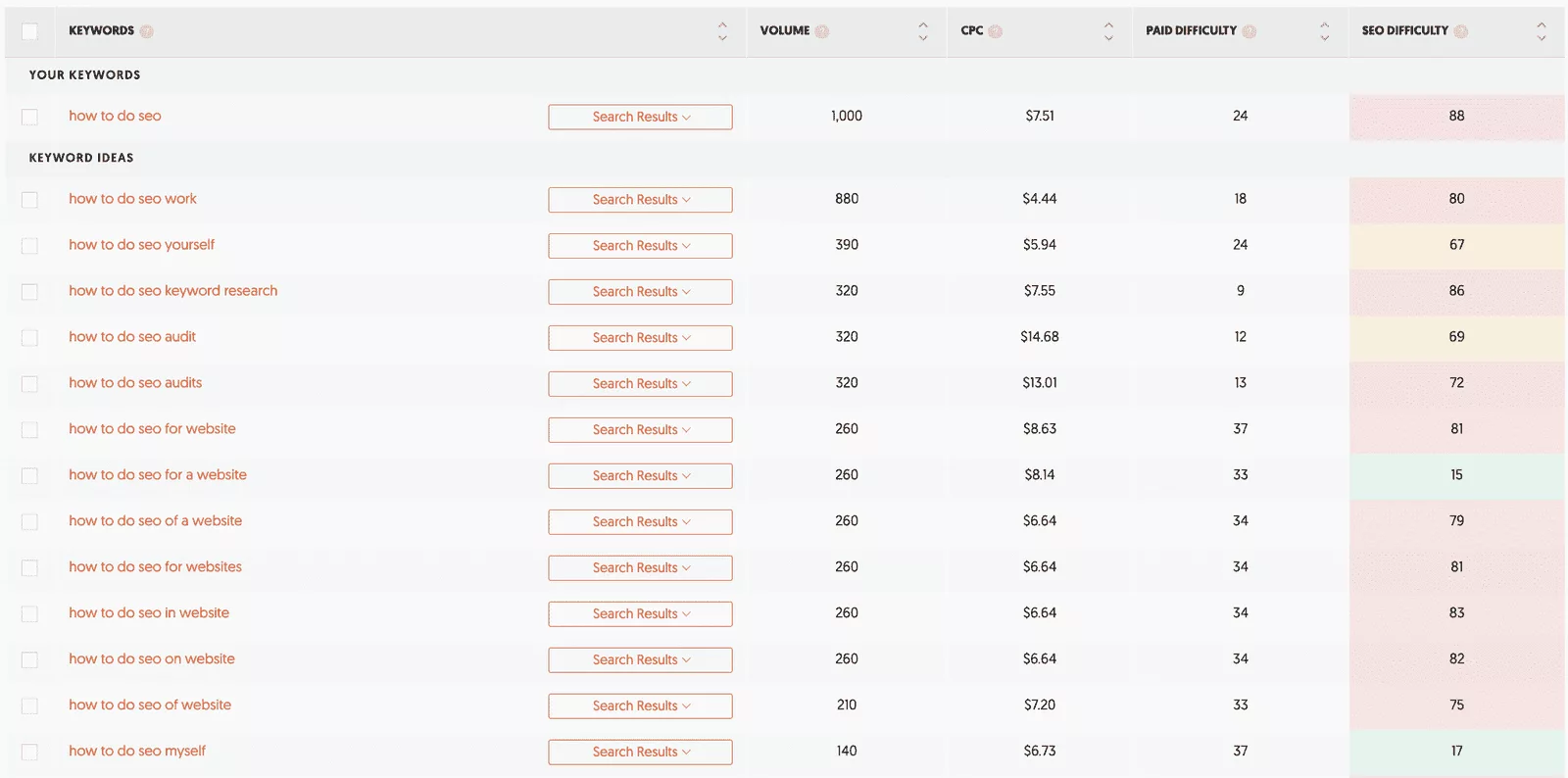
Why Are Keywords Important For SEO?
Keywords are a critical component of SEO. They are the words or phrases that best describe the content on a web page, and they are essential for helping search engines find it. Using the right keywords can make all the difference to how well your site ranks in search results, so it’s important to use as many relevant SEO keywords as possible. Many SEO keywords should be included in titles, headings, and throughout the text of your web pages.
The more you include them, the easier it will be for search engines to locate and rank your page. Additionally, those same keywords help potential customers learn about your business by finding you in searches. Keywords are an integral part of SEO success, so make sure you use them strategically to boost visibility and website traffic.
Request Free Review
We start by reviewing your website and then take a look at your current ranking in SERPs.
- Unlock Your Website’s Potential with Our Comprehensive Analysis.
- Outrank Your Competitors with Our Expert Insights and Recommendations.
- Ways for increasing website traffic.
- Get Tailored Recommendations to Achieve Better Results Online.
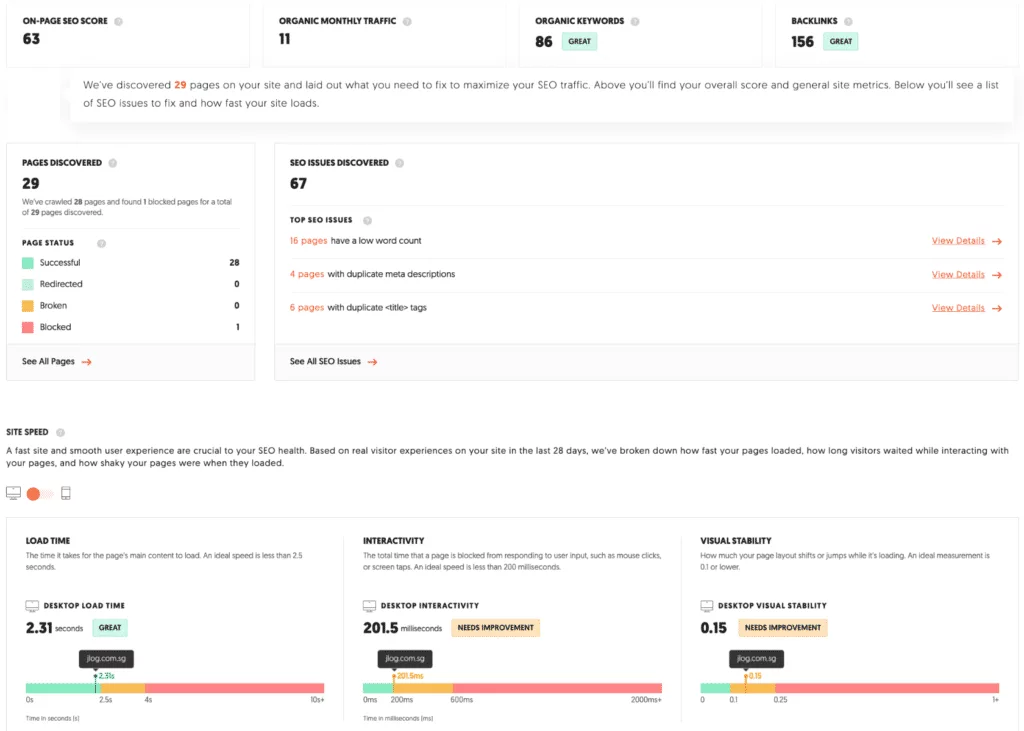
How Many Keywords per Page for SEO?
When it comes to SEO, one of the most important aspects is the number of keywords used per page. The keyword density should be balanced in order to maximize the visibility and effectiveness of a website. Generally, it is recommended that between 1-3 keywords are used per page for SEO purposes.
However, this number can vary depending on the length of the content and how many related keywords you want to include. It is important to remember that if too many keywords are used per page, it could negatively affect your SEO as well as potentially confuse search engine crawlers.
Therefore, it is important to determine an optimal ratio of keywords that works best for your website while still providing a clear message and good user experience. Ultimately, when optimizing your website with SEO in mind, it’s important to consider the keyword density and number of keywords used per page carefully in order to ensure maximum visibility and effectiveness.
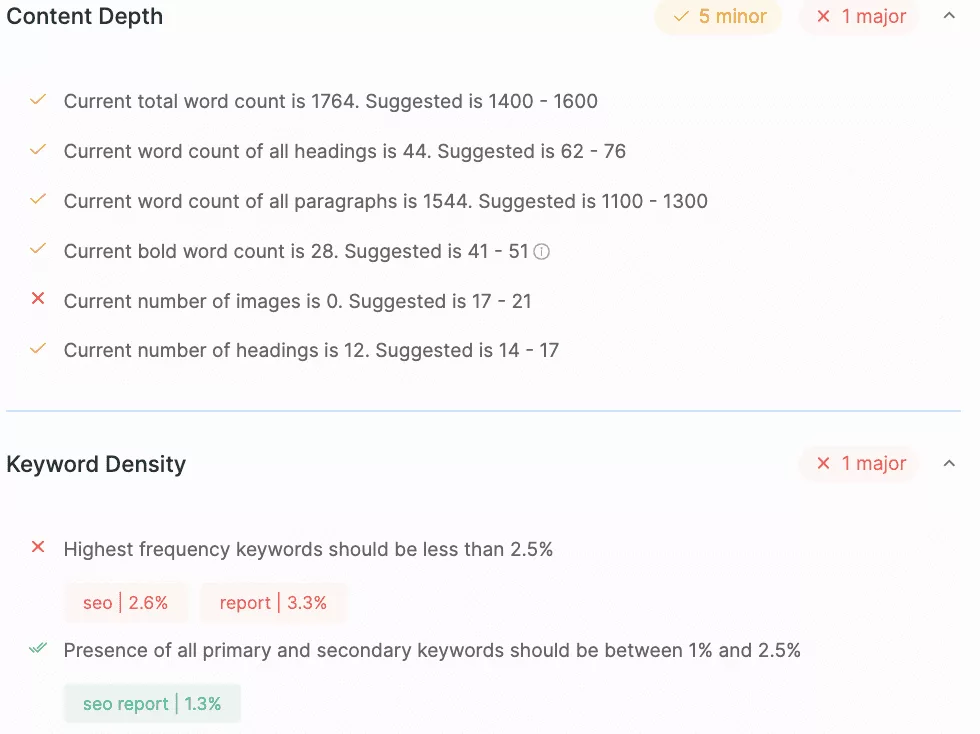
Should I Use the Same Keywords On Every Page?
When it comes to SEO, it’s important that you use the same keywords on every page. This is because each page should target a set of keywords that are related and relevant to the topic.
Doing this will help search engines quickly and accurately determine what your page is about. If you use the same keyword on another page, it can cause confusion for search engines and damage your SEO efforts.
To avoid this, keep track of which keywords you are using for each page and try to use those keywords consistently throughout your website. Additionally, don’t forget to periodically review and update your list of keywords so that you can ensure they remain relevant as time goes on.
What Is the Ideal Keyword Density?
The ideal keyword density is an important factor to consider when optimizing a web page for search engine optimization (SEO). primary Keyword density refers to the frequency in which a target keyword appears on a page.
Generally, it is recommended that the keyword appears two times per 100 words. Having too many keywords on a page can lead to keyword stuffing which can negatively affect your SEO efforts and rankings. Using the keyword too little can also be detrimental as your web page may not appear on page one of the search engine results when people search for it.
Therefore, it is important to use the keyword in the right amount on each web page for optimum SEO results. Additionally, you should also use other related keywords in order to make sure that your web page reaches its maximum potential on all major search engines.
What Is Keyword Frequency?
Keyword frequency is an important concept in SEO. It refers to how often a keyword appears on a web page. The higher the frequency, the more likely it will be found in search engine results.
Keyword density is another term used when discussing keyword frequency, which is a measure of how many times a keyword appears relative to the total number of words on a page.
If keyword stuffing occurs, it means that too many keywords are being included in an effort to manipulate search engine rankings and should be avoided.
In general, the best practice for keyword frequency is to include relevant keywords throughout your text naturally so that your content remains useful and engaging for readers.
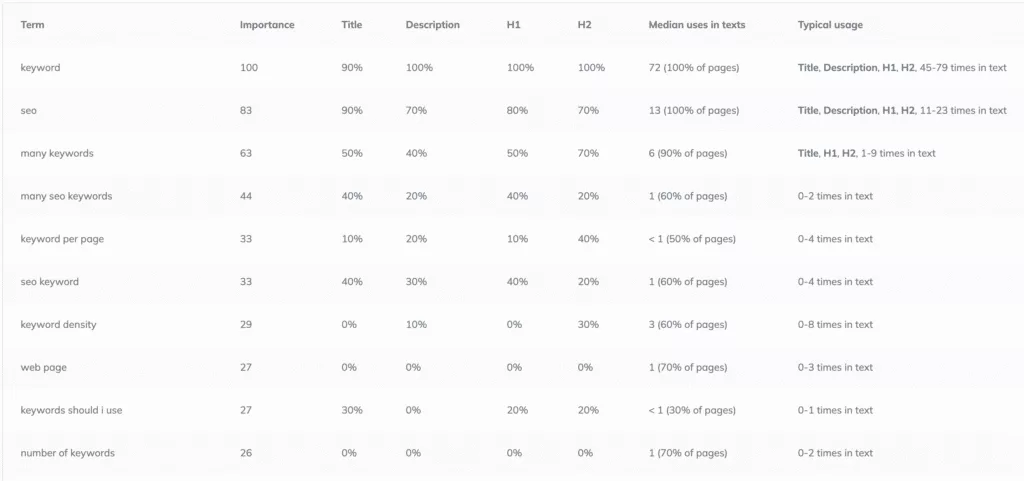
Keyword Stuffing -What Is It and When Is It Too Much?
Keyword stuffing is a practice used by web page owners to increase their page’s search engine optimization (SEO) ranking. It involves adding an excessive number of keywords to a single page in order for it to appear more relevant and rank higher.
The problem is that if you stuff too many keywords into your web page, it can actually be detrimental to your SEO ranking as it looks like spam.
When deciding how many keywords you should target, consider the size of the web page and how many times you want one keyword to appear on the page.
You don’t want to use too many because it will affect readability and website performance, but you also don’t want too few as this could limit your SEO visibility.
By taking a balanced approach and understanding when keyword stuffing is too much, you can create an optimized web page that stands out from the competition.
Identifying The Right Keyword Targets
Identifying the right keyword targets for SEO is essential for any website or online content. It’s important to understand how keyword density, the number of keywords used and keyword variations can affect your overall ranking.
Keyword research helps you determine what keywords should be used in order to effectively optimize your website or content. You need to be sure that the main keyword or phrase is used on every page of your website and that it’s included in the page URL, page title, headings, body copy and meta description.
Long-tail keywords are also important as they can help you rank higher for a specific search query. Additionally, you should avoid using too many keywords on a single page as this can lead to keyword stuffing, which will negatively affect SEO rankings.
To make sure you’re optimising properly, it’s best to use keyword research tools such as Google Search Console and Google Ads Keyword Planner to identify relevant keywords and keyword variations that you could use on each page of your website.
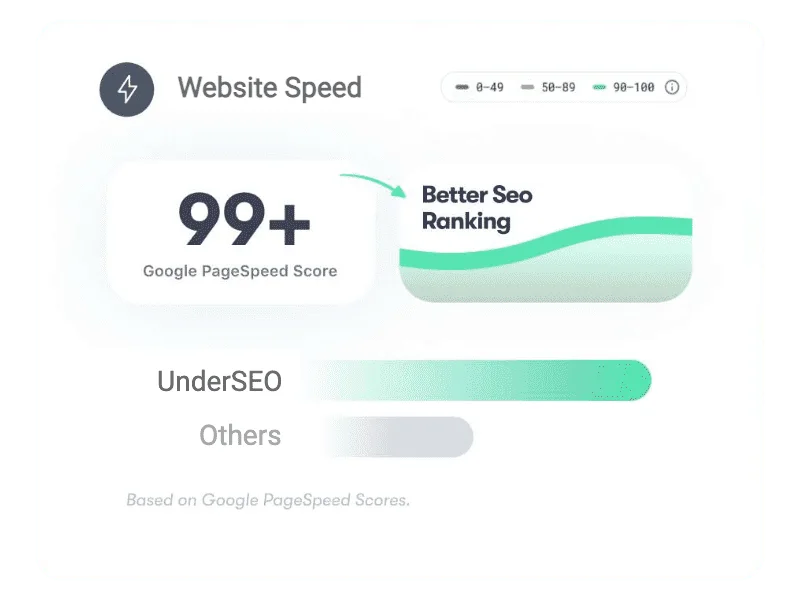
Need Some Help?
How Many SEO Keywords Should Use & Tracking in 2025?
How many keywords should be used in a 500-word blog?
When writing a blog post of 500 words, the number of keywords used should depend on the context and purpose of the article. Generally speaking, it is best to use two to three keywords throughout the post, so that search engine algorithms can easily identify what your content is about.
You should also make sure that your keywords appear in titles and subheadings, as well as in the body of your text. Additionally, try to spread out your keyword usage; don’t use all of them within the first paragraph!
Lastly, remember to include variations of your chosen keywords – such as plurals and synonyms – to ensure that you are reaching the widest audience possible. By following these steps, you can ensure that your blog post will be optimized for search engine visibility without sacrificing its readability.
How many keywords should you use on a 1000-word page?
When creating content for a website, the number of keywords used on a 1000-word page should depend on the focus and purpose of the page.
Generally speaking, it is recommended to use 1-2 primary keywords and a few related secondary keywords. Keyword density should be kept between 2-4%, which means that for every 1000 words, around 20-40 instances of your keyword phrases should appear.
To maximize SEO value, you should also include variations of your primary keywords in natural language throughout the article. This can help to ensure that all relevant topics are covered, as well as improving readability for users.
Ultimately, including too many keywords could lead to keyword stuffing, which can have serious adverse effects on SEO rankings. As such, it is important to strike a balance between optimizing content with keywords while still maintaining an engaging and informative writing style.
How many keywords should I be tracking?
When it comes to tracking keywords, the number of keywords you should track depends on the size of your website and the industry you’re in. Generally, a good starting point is to track between 50 and 100 keywords. This is enough to get an indication of how well your website is performing in the search engine results pages (SERPs).
However, if you have a larger website with multiple topics or product lines, you may need to track even more keywords. Additionally, if you’re in a highly competitive industry with many competing websites, then tracking more than 100 keywords could be beneficial. It all depends on your individual situation and goals.
With that said, it’s important that you monitor the performance of your tracked keywords regularly so that you can make adjustments where necessary. This will ensure that your website remains visible for relevant searches and continues to promote your brand or products effectively.
What is the ideal word count for SEO?
The ideal word count for SEO is highly dependent on the type of content you are producing. Generally speaking, the longer your content is, the better it will perform in search engine rankings. However, there is no “magic number” when it comes to word count – what works best for one website may not work as well for another.
In general, it’s best to aim for content that is at least 500 words long, as this has been proven to rank higher than shorter posts.
Additionally, it’s important to note that quality trumps quantity when it comes to SEO; even if your post meets the 500-word minimum, make sure that the content you are providing is valuable and relevant to readers. Writing content with a focus on quality over quantity will help ensure that your website remains visible and competitive in search engine rankings.
What keywords should you track?
When it comes to tracking keywords, there are a few different types of keywords that should be tracked. First, there are short-tail keywords, which are typically one or two words long and provide a broad search result.
Short-tail keywords can be used to help identify general trends in the market and can help you identify what topics are trending or popular at the moment. Long-tail keywords, on the other hand, consist of several words and provide more specific results.
These types of keywords can help you target specific audiences or customers who are searching for specific products or services. Additionally, brand-specific keywords should also be tracked as these will help you understand how your brand is being perceived online.
Finally, localized keywords should also be tracked as this will ensure that your content is reaching people in the right area and providing them with relevant information. Tracking all these different types of keywords will ensure that you have an effective marketing strategy that reaches your target audience.


